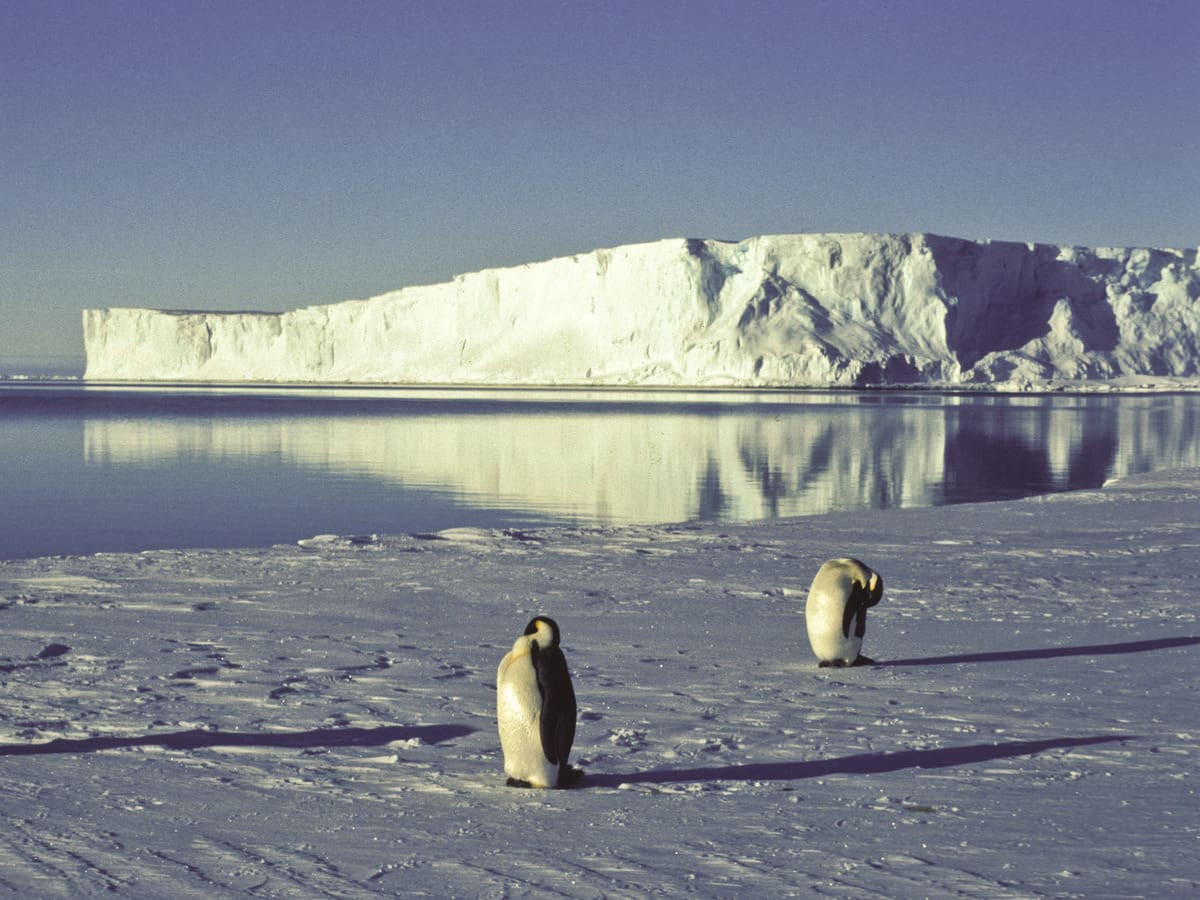Scientists have once again shown that the climate crisis is decimating the world’s icy and sole uninhabited continent. In 2023, researchers recorded Antarctica’s lowest ever sea ice extent. Now, a new study has shed light on the role rampant climate breakdown is having on this. Alarmingly, it’s wreaking havoc on unique biodiversity of the southern polar region.
Antarctic sea ice decline
On 20 May, scientists published a damning new study on Antarctic sea ice extent. Specifically, it revealed the key role the climate crisis had in last year’s record-low levels of Antarctic sea ice.
Scientists from the British Antarctic Survey (BAS) found that the fossil fuel capitalist-driven global heating resulted in a once-in-2,000-year low in ocean surface ice.
Compared to an average winter over the last several decades, the maximum extent of Antarctic sea covered by ice shrank by two million square kilometres. Alarmingly, this equates to an area four times the size of France.
The BAS scientists analysed 18 distinct climate models. Through these, they found that the climate crisis quadrupled the likelihood of such large and rapid melting events. These were the findings of a new study published in the journal Geophysical Research Letters.
Climate crisis a key variable
Understanding the cause of sea ice melt is complex as there are many variables. Notably, scientists have said that ocean water and air temperatures, and wind patterns can effect it.
However, determining the role of climate breakdown is critical. This is particularly so, since ice formation has global impacts from ocean currents to sea-level rise.
As the Canary previously reported, while some scientists believe that wind patterns may be the main cause of Antarctic sea ice loss, scientist have been suggesting climate crisis is likely also a considerable factor. Now, this new study determines that this is the case.
Sea ice itself, which forms from freezing salt water already in the ocean, has no discernable impact on sea levels. Specifically, this is because snow and ice is highly reflective. So, when this gives way to dark blue ocean, the same amount of the Sun’s energy that was bounced back into space is absorbed by water instead. Of course, this accelerates the pace of global heating.
The study’s lead author Rachel Diamond told AFP that:
This is why we were so interested in studying what climate models can tell us about how often large, rapid losses like this are likely to happen
In the Arctic, sea ice has been declining since satellite records began in the 1970s. By contrast, the melt trend in Antarctica is a more recent phenomenon. According to BAS, Antarctic sea ice increased “slightly and steadily” from 1978 until 2015.
However, 2017 brought a sharp decline, followed by several years of low ice levels. Given these trends, BAS researchers also ran projections to see whether the ice would return. Diamond told AFP that:
It doesn’t completely recover to original levels even after 20 years.
Moreover, she explained that this means that:
the average Antarctic sea ice may still stay relatively low for decades to come
Ice loss driving the biodiversity crisis
Co-author Louise Sime laid out the repercussions of this in terms of the ongoing biodiversity crisis. She said that:
The impacts… would be profound, including on local and global weather and on unique Southern Ocean ecosystems – including whales and penguins
For instance, as the Canary’s HG reported in August 2023, another study demonstrated the devastating consequences of sea ice loss on emperor penguin populations. As she reported, the BAS study in Nature journal Communications Earth & Environment found that:
in 2022, extensive regional Antarctic ice loss caused “catastrophic” breeding failures in four major emperor penguin colonies. This is the first time on record a study has documented such widespread colony breeding collapse.
Reared on the ice sheets, they perished when they were plunged into the ocean before they had developed their waterproof feathers. On top of this, it calculated that:
sea ice loss could drive 90% of emperor penguin colonies to extinction by the end of the century. Specifically, this devastating decline will occur if current levels of global warming continue.
This new study once again shows how the intensifying climate crisis is wreaking havoc. Crucially, it is exacerbating sea level rise, destroying vital habitats, and threatening biodiversity. As the evidence continues the mount, the stakes for people and the planet are ever higher.
Feature image via Hannes Grobe/AWI/Wikimedia, cropped and resized to 1200 by 900, licensed under CC BY 3.0
Additional reporting by Agence France-Presse




